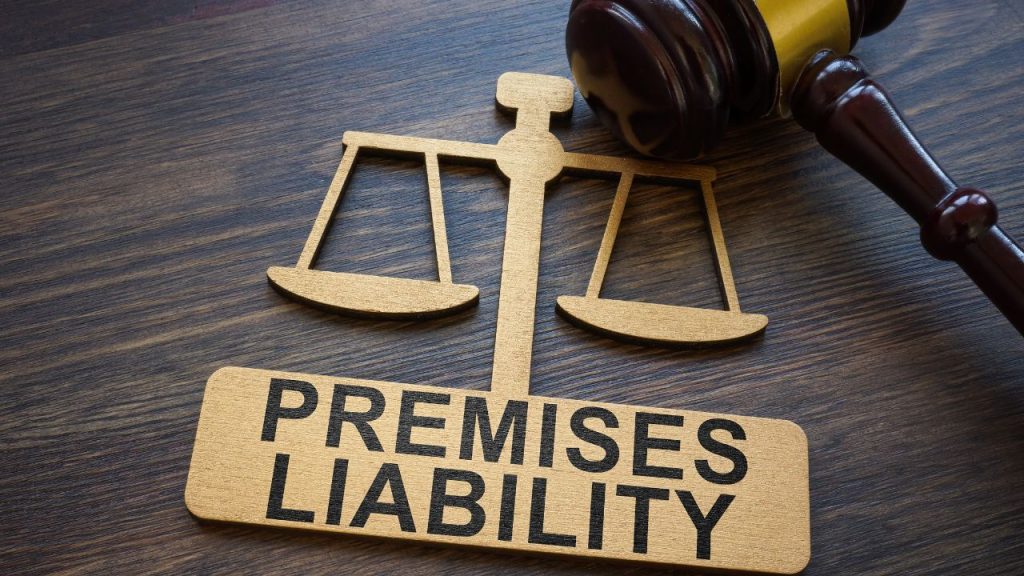Table of Contents
Understanding the Role of a Premises Liability Lawyer in Wilmington, NC
When accidents occur on someone else’s property, the legal landscape can quickly become complex. In Wilmington, NC, premises liability lawyers play a crucial role in helping victims navigate these murky waters. Their expertise is vital for individuals who have suffered injuries due to unsafe conditions on another person’s property. Understanding why you might need a premises liability lawyer and what they do can be invaluable. This article will explore their role, how they can assist you, and vital factors in choosing the right attorney.
The Importance of Premises Liability Law
Premises liability law holds property owners accountable for injuries suffered by individuals on their property. Such laws vary from state to state, but in Wilmington, the obligation is clear: property owners must maintain a safe environment. If they fail to do so and someone gets hurt, they may be liable for damages.
Common Types of Premises Liability Cases
- Slip and Falls: This category involves most accidents resulting from wet floors, uneven surfaces, or other hazardous conditions.
- Inadequate Security: If a property owner fails to provide proper security measures, they could be liable for injuries resulting from assaults or criminal activities.
- Animal Bites: Dog owners may be held responsible if their pets attack someone.
- Collapsed Structures: Injuries from poorly maintained buildings or falling debris often fall under premises liability.
- Swimming Pool Accidents: Property owners must ensure proper safety features are installed to prevent drowning risks.
What Does a Premises Liability Lawyer Do?
A premises liability lawyer in Wilmington, NC, specializes in helping victims of these accidents understand their rights and seek compensation. They typically undertake the following tasks:
- Initial Consultation: Most attorneys offer a free consultation to assess the case’s merits and determine if you have a valid claim.
- Evidence Gathering: Lawyers collect evidence, including photographs of the accident scene, medical records, and witness statements.
- Legal Representation: They advocate for you in negotiations with insurance companies and, if necessary, represent you in court.
- Calculating Damages: Attorneys help you understand the full extent of damages, including medical costs, lost wages, and pain and suffering.
- Contingency Fee Arrangements: Most premises liability lawyers work on a contingency fee basis, meaning you don’t pay unless they win your case.
Choosing the Right Premises Liability Lawyer in Wilmington, NC
Selecting an attorney for your premises liability case is crucial. Consider the following factors:
- Experience: Look for a lawyer who has experience specifically in premises liability cases.
- Track Record: Investigate their history of successful outcomes in similar cases.
- Local Knowledge: A lawyer familiar with Wilmington’s laws and regulations can be an asset.
- Client Reviews: Check online reviews and testimonials to gauge the satisfaction of former clients.
- Communication: Ensure your lawyer is someone you can communicate with easily, as strong communication is vital throughout your case.
The Process Following an Injury
After experiencing an injury on someone else’s property, it’s essential to take specific steps to bolster your case:
- Seek Medical Attention: Always prioritize your health and seek medical help right away.
- Document the Incident: Take photos of the site and any visible injuries, and gather witness information.
- Report the Incident: Notify the property owner or manager about the accident as soon as possible.
- Contact a Lawyer: The sooner you consult a premises liability lawyer, the better your chances of building a strong case.
With a qualified premises liability lawyer in Wilmington, NC, you can navigate the complexities of your case with confidence. These legal professionals are not just advocates; they are allies who guide you through a challenging time, ensuring your rights are protected and you receive the compensation you deserve. Whether your case concerns a slip and fall, inadequate security, or any other premises liability issue, having the right attorney by your side can make all the difference.
Common Types of Premises Liability Cases in North Carolina
Premises liability law focuses on ensuring that property owners maintain safe environments for their visitors. In North Carolina, various types of cases fall under this legal category. Understanding these common cases can be crucial for both victims seeking justice and property owners aiming to avoid liability claims.
Slip and Fall Accidents
Slip and fall accidents are among the most prevalent premises liability cases. These incidents often occur in:
- Restaurants
- Grocery stores
- Shopping malls
- Public sidewalks
- Private residences
In these situations, the property owner may be held liable if they failed to address hazardous conditions, such as wet floors or uneven surfaces, that lead to injuries.
Inadequate Maintenance
Property owners have a legal obligation to keep their premises in good condition. Inadequate maintenance can lead to serious injuries. Common issues include:
- Broken stairs
- Loose railings
- Potholes in parking lots
- Neglected landscaping that obstructs pathways
Victims injured due to poor maintenance may file a claim against the property owner for damages.
Dog Bites and Animal Attacks
Incidents involving dog bites also fall under premises liability. North Carolina follows the “one bite rule,” meaning owners may be liable if their dog previously demonstrated aggressive behavior or if they failed to restrain it in a way that prevents attacks. Areas where dog bites commonly occur include:
- Parks
- Private residences with loose pets
- Dog daycare centers
Victims of dog bites often incur medical expenses and may seek compensation from the owner’s insurance policy.
Swimming Pool Accidents
Swimming pool accidents can lead to severe injuries or fatalities. Property owners must comply with safety regulations to minimize risks. Common issues include:
- Lack of proper signage regarding pool safety
- Insufficient fencing around the pool area
- Poorly maintained pool equipment
If a guest suffers an injury or drowning due to a property owner’s negligence, they may have grounds for a premises liability case.
Negligent Security
Property owners must ensure adequate security measures are in place to protect guests. Instances of negligent security can lead to criminal acts, such as theft or assault, occurring on the premises. Locations affected by negligent security often include:
- Hotels
- Apartment complexes
- Shopping centers
Victims may pursue compensation if they can establish that the property owner lacked reasonable security measures, leading to their injuries.
Workplace Injuries
Sometimes, property liability extends to workplace injuries in commercial settings. Employers are responsible for ensuring a safe working environment. Common workplace hazards that lead to liability cases include:
- Unsafe equipment
- Exposure to toxic materials
- Inefficient emergency exits
If an employee is injured while at work due to an unsafe premise, they may file a premises liability claim against their employer.
Retail Store Accidents
Accidents occurring in retail environments are also prominent in premises liability cases. Some frequent occurrences involve:
- Falling items from shelves
- Injuries due to overcrowded aisles
- Dangerous store displays
To establish liability, the injured party must demonstrate that the store owner failed to ensure a safe shopping environment.
Understanding these common types of premises liability cases will help both victims and property owners navigate potential legal issues effectively. With a comprehensive approach to safety, property owners can significantly reduce their risk of liability while ensuring their guests enjoy a safe environment.
How to Choose the Right Premises Liability Lawyer in Wilmington
Finding the right premises liability lawyer in Wilmington, NC, can significantly impact the outcome of your case. Whether you’ve experienced a slip and fall, a dog bite, or any other injury due to unsafe conditions on someone else’s property, having a skilled attorney by your side is crucial. Here’s how to navigate your search effectively.
Evaluate Experience and Expertise
One of the first steps in choosing a premises liability lawyer is to evaluate their experience and expertise.
- Years in Practice: Look for a lawyer with substantial experience in handling premises liability cases. Ideally, you want someone who has been in practice for at least five years.
- Specific Expertise: Ensure the lawyer has a proven track record in premises liability. This includes familiarity with various types of cases like slip and falls, inadequate security, or unsafe property conditions.
- Past Cases: Ask about previous settlements or jury verdicts they’ve achieved in similar cases. This not only showcases their capability but also builds your confidence in their abilities.
Check Their Reputation
Reputation can often speak volumes about a lawyer’s commitment and success.
- Client Reviews: Read online reviews on platforms like Google, Yelp, and Avvo to get a sense of client satisfaction.
- Legal Directories: Check legal directories for peer reviews and ratings. A strong rating from other attorneys can highlight their standing in the legal community.
- Bar Association Standing: Ensure the lawyer is in good standing with the North Carolina Bar Association. This checks for any disciplinary records.
Assess Communication Skills
Effective communication is key to a successful attorney-client relationship.
- Initial Consultation: Pay attention to how the lawyer communicates during your initial consultation. Are they attentive, and do they answer your questions clearly?
- Availability: Ensure the lawyer is accessible for questions or concerns throughout your case. You don’t want to feel neglected or uninformed.
- Transparency: A good lawyer will be transparent about their fees, case strategy, and expectations. Look for someone who outlines everything clearly.
Consider Fees and Payment Structure
Understanding the legal fees involved can be crucial in your decision-making process.
- Contingency Fees: Most personal injury lawyers operate on a contingency fee basis. This means they only get paid if you win your case. Find out what percentage they take and any additional costs that might arise.
- Free Consultation: Many lawyers offer a free initial consultation, allowing you to gauge their services without a financial commitment.
- Additional Costs: Be aware of other expenses that may occur, such as filing fees, courtroom expenses, or costs for experts. Get a clear breakdown before proceeding.
Local Knowledge Matters
Choosing a Wilmington-based lawyer comes with distinct advantages.
- Familiarity with Local Laws: A lawyer who operates in Wilmington will have a deep understanding of North Carolina premises liability laws and the local judicial system.
- Relationships with Local Courts: Established relationships with judges and other legal professionals can sometimes benefit your case.
- Community Involvement: A lawyer who is invested in the Wilmington community may have more insight into local issues or norms that could impact your case.
Trust Your Instincts
Ultimately, your comfort and trust in a lawyer play a pivotal role in your choice. Before making a decision, consider the following:
- Personal Rapport: You should feel comfortable discussing personal details of your case with your lawyer.
- Gut Feeling: Trust your instincts. If something feels off during your interactions, don’t hesitate to seek consultations with other attorneys.
Choosing the right premises liability lawyer in Wilmington, NC, is a vital step in ensuring that your rights are protected and you receive the compensation you deserve. Take your time to research and consult multiple lawyers, equipping yourself with the knowledge that will lead to a successful partnership.
The Importance of Documentation in Premises Liability Claims
When pursuing a premises liability claim, documentation plays a crucial role in building a strong case. Without solid evidence, proving negligence becomes an uphill battle. It’s essential for victims to understand the types of documentation that can bolster their claims, as well as how to effectively gather and present this information.
Types of Documentation
Different types of documentation can significantly affect the outcome of a premises liability case. Here are some key categories to focus on:
- Medical Records: These provide evidence of the injuries sustained, treatment received, and the prognosis for recovery. It’s vital to keep all related medical paperwork.
- Accident Reports: These are typically filed by law enforcement or other authorities. They help confirm details related to the incident, providing an official record of what occurred.
- Photographs and Videos: Visual evidence is incredibly powerful. If safe to do so, take pictures of the scene immediately following the incident, including details like hazardous conditions or lack of warning signs.
- Witness Statements: Eyewitness accounts can corroborate your version of events. Always try to obtain the contact information of anyone who saw the accident happen.
- Maintenance Records: Documentation of repairs or inspections can demonstrate whether the property owners took reasonable care to maintain a safe environment.
- Insurance Correspondence: Keep all communications with insurance companies, as these can provide insight into the liability and coverage available.
Why Documentation is Vital
Accurate and comprehensive documentation is essential for several reasons:
- Establishing Negligence: To win a premises liability case, it’s necessary to show that the property owner failed to maintain safe conditions. Documenting hazardous situations can help establish this negligence.
- Validating Claims: Insurers and courts will require evidence to back up any claims for damages. Comprehensive documentation serves to validate the severity of injuries and financial losses.
- Strengthening Negotiations: Having well-organized documents can bolster your negotiating position with insurance companies, potentially resulting in better settlement offers.
- Facilitating Legal Proceedings: If your case goes to court, clear documentation is indispensable in presenting a compelling legal argument.
How to Gather Effective Documentation
Gathering accurate documentation isn’t just about snapping photos and taking notes. Here are strategies to streamline the process:
- Be Proactive: Immediately after an incident, try to collect documentation. The sooner you start, the better, as memories fade and evidence can disappear.
- Organize Information: Keep all documents in one place and categorize them effectively. A well-organized file makes it easier to present your case to a lawyer.
- Consult Professionals: Employing a premises liability lawyer can provide guidance on what documentation is necessary and how to obtain it legally and ethically.
- Follow Up: It’s essential to follow up on any outstanding documentation requests, whether from medical providers or local authorities.
Common Pitfalls to Avoid
When gathering documentation, victims often make mistakes that can hurt their claims. Here are some common pitfalls:
- Failing to document all injuries or damages shortly after the incident.
- Neglecting to gather witness information or video footage.
- Not keeping receipts or records of medical bills and lost wages.
- Inadvertently discarding evidence or failing to back up important files.
Properly documenting your premises liability claim can make or break your case. The more detailed and organized your evidence, the better your chances of receiving the compensation you deserve. Never underestimate the power of thorough documentation in establishing the facts of your situation.
Navigating the Legal Process: What to Expect with a Premises Liability Case
When you experience an injury on someone else’s property, understanding how to navigate a premises liability case can feel overwhelming. Several steps are typically involved in the legal process, and knowing what to expect can aid in reducing your stress levels. This overview will guide you through the intricacies of a premises liability case to prepare you adequately for what lies ahead.
Understanding Premises Liability
Premises liability refers to the legal responsibility of property owners to ensure their premises are safe for visitors. If someone sustains injuries due to unsafe conditions, they might have grounds for a lawsuit. Common situations include slips, trips, falls, or injuries resulting from inadequate security.
Initial Steps After an Injury
After sustaining an injury, the first thing to do is seek medical attention. Documenting your injuries and treatments will provide vital evidence if you proceed with a claim. Here are the steps to take:
- Visit a healthcare provider.
- Document your injuries through photos and medical records.
- Collect information from witnesses who saw the incident.
- Report the incident to the property owner or manager.
Consulting a Premises Liability Lawyer
Once you have collected sufficient information, reaching out to a premises liability lawyer is crucial. A skilled attorney has the experience to evaluate your case accurately. They will:
- Assess the merits of your claim.
- Gather evidence supporting your case.
- Help determine the liable parties.
- Advise on the necessary legal actions to take.
Filing a Claim
After hiring a lawyer, you will begin the process of filing a claim. Your attorney will draft the necessary documentation, including details about the accident and the damages incurred. Essential components of a claim include:
| Document | Description |
|---|---|
| Incident Report | A detailed account of the accident. |
| Medical Records | Proof of injuries and treatment received. |
| Witness Statements | Accounts from individuals who witnessed the incident. |
| Photos | Visual evidence of the scene and injuries. |
Investigation Phase
Once the claim is filed, both parties usually engage in an investigation phase. Your lawyer will work diligently to gather evidence, talk to witnesses, and potentially secure expert opinions. The defense will also conduct its investigation, often trying to minimize or deny liability. Effective communication between your attorney and the insurer is critical during this period.
Negotiations
Following the investigation, your lawyer will attempt to negotiate a settlement with the responsible party’s insurance company. Settlements are often desirable as they provide compensation without the need for a lengthy court trial. However, you should bear in mind:
- Insurance companies may offer low initial settlements.
- Your lawyer will negotiate based on medical costs, lost wages, and pain and suffering.
- Evaluate offers carefully; accepting the first offer might not be in your best interest.
Going to Court
If negotiations fail, your case may proceed to court. During this process, the following steps will typically occur:
- Filing a lawsuit in the appropriate court.
- Discovery phase, where both sides exchange evidence.
- Pre-trial motions and opportunities for settlement.
- Trial, where both parties present their cases before a judge or jury.
Understanding Compensation
In a premises liability case, the compensation offered can vary significantly based on several factors, including:
- Severity of injuries sustained.
- Impact on daily life and work.
- Evidence supporting negligence.
- Insurance policy limits of the defendant.
By comprehending these steps and processes, you can navigate your premises liability case with greater assurance. A qualified premises liability lawyer will be your best asset during this time, guiding you through each step and ensuring that your rights are protected.
Conclusion
When encountering a potential premises liability case in Wilmington, NC, understanding the various aspects of the legal landscape can significantly impact your experience and outcomes. Given the specific role that a premises liability lawyer plays, it’s essential to recognize how their expertise can be instrumental in navigating the complexities of your case. A knowledgeable attorney can help you understand your rights and responsibilities, assess your claims, and develop a strategy tailored to your unique circumstances.
Common types of premises liability cases in North Carolina often include slip-and-fall accidents, inadequate security claims, and dog bites, among others. Each case falls under different categories, but they all share the common theme of premises negligence. Whether you’re dealing with a restaurant that didn’t post warning signs about wet floors or a property owner who failed to maintain safe conditions for visitors, knowing the specifics of your case can help shape your approach when seeking legal assistance. Understanding these common cases enables you to communicate effectively with your lawyer, ensuring that no critical details are overlooked while building your case.
Choosing the right premises liability lawyer in Wilmington is paramount for successful navigation through this often daunting legal terrain. It’s wise to assess the lawyer’s experience and background in handling similar cases. Their reputation in the community can also provide insight into how effectively they may advocate for your case. Client testimonials and case results can be indicative of their skillset. Furthermore, scheduling a consultation is critical—it offers an opportunity for you to gauge their approach and determine if their communication style aligns with your expectations. A strong legal partnership can make all the difference in your journey towards justice.
The importance of documentation cannot be overstated when it comes to premises liability claims. Proper records not only strengthen your case but also provide your lawyer with critical information to work with. A well-documented file that includes photographs of the scene, incident reports, witness statements, and medical records can bolster your position significantly. When pursuing a claim, presenting clear evidence can lead to faster resolutions, whether that results in negotiated settlements or court action. By being meticulous about documentation from the start, you enhance your credibility and increase your chances of a favorable outcome.
As you navigate the legal process involved in a premises liability case, understanding what to expect is vital to alleviating much of the related stress. The legal system operates on a framework that includes filing claims, potentially engaging in mediation or settlement negotiations, and perhaps court proceedings if a resolution cannot be reached. Depending on the complexity of your case, timelines can vary considerably, and keeping an open line of communication with your lawyer can help mitigate any confusion. Direct involvement in your case will provide you with a clearer understanding of next steps and expected timelines.
Engaging with a knowledgeable premises liability lawyer in Wilmington, NC, can make the journey less intricate and offer the support you need during a challenging time. The right attorney will guide you through the nuances of your case, ensuring that your side of the story is heard while striving for the best possible outcome. By focusing on solid documentation, choosing the right lawyer, and understanding the potential avenues for your claim, you position yourself for success. These steps will empower you as you take on the often overwhelming task of pursuing a premises liability claim. Your efforts in demanding justice and accountability can not only lead to personal peace of mind but also contribute to a safer environment for others in Wilmington. Advocate for your rights and interests with confidence—you deserve justice, and with the right support, it’s possible to achieve it.








